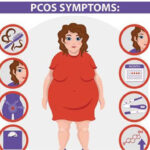Rita Okonkwo is the Global Health Security Lead at the Institute of Human Virology Nigeria (IHVN). In this interview, she speaks on how Hospital-Acquired Infections (HAIs) cause prolonged patients ‘ stay in the hospital, illness and death, as well as the need to strengthen Infection Prevention and Control (IPC) measures across health facilities in the country.
How prevalent are HAIs in Nigeria?
HAIs are infections that patients typically acquire during their stay in the hospital. Unfortunately, there are no records of their prevalence in Nigeria, but research from other low and middle-income countries indicate prevalence ranging from 5 to 15 per cent. This is quite significant considering what this means to patients. It prolongs their stay in the hospital, worsens their condition and is a source of morbidity and mortality.
What causes HAIs?
They are caused by viral, bacterial and fungal pathogens, with bacterial infections recorded as the most prevalent.
- PHOTOS: Presidency finally unveils new Presidential jet, keeps mum on cost
- Adamawa begins payment of N70,000 minimum wage in August
These organisms are spread through person-to-person contact due to suboptimal infection prevention and control (IPC) practices among healthcare workers.
Most HAIs are preventable and can be prevented by up to 70 per cent through effective IPC practices. Several practices have been identified as the standard of practice in IPC.
Performing hand hygiene when recommended, use of correct protective equipment when attending to patients, proper waste management practices, ensuring sterilisation and injection safety practices are some of the recommended practices to prevent HAIs.
In what ways do you think public or private health facilities can prevent HAIs?
In Nigeria, there are poor practices regarding IPC mainly due to the inadequate capacity of facilities to implement the recommended standard practices
The World Health Organisation (WHO) has highlighted eight core domains to guide healthcare facilities to assess and strengthen their capacity to implement the recommended IPC activities.
Assessments conducted in 30 health facilities where IHVN supports IPC showed that four of the facilities have advanced level of IPC promotion and practice.
Capacity to implement standard IPC practices is weak in Nigeria and needs significant investment for improvement. The COVID-19 pandemic highlighted the need to further strengthen broad capacity for IPC. We experienced widespread COVID-19 infections in healthcare facilities, which resulted in closure of several healthcare facilities. We found weak capacity to screen, rapidly identify and notify the relevant government agency as part of recommended preventive strategy.
What is the Global Health Security Project implemented by IHVN?
The Institute of Human Virology Nigeria (IHVN), through funding from the US-CDC, is supporting the Federal Ministry of Health, the Nigeria Centre for Disease Control (NCDC) and other government stakeholders to strengthen health systems’ capacity to prevent, detect and respond to public health events and disease outbreaks. Since 2020 we have been working closely with NCDC in areas of surveillance operations and surveillance information systems to strengthen the capacity of the country to collect high quality data for priority diseases to drive decision making.
We also support the government to respond to epidemics like Lassa fever, which we know is endemic in Nigeria, and yellow fever. We are building the capacity of the country to use data collected routinely to drive decision-making. Additional support also includes supporting NCDC to strengthen health facilities in areas of IPC. Initial support was in four states in the area of surveillance and two states supporting IPC.
During the COVID-19 pandemic, IHVN under its global health security, supported the implementation of sero-surveillance to understand how widespread the COVID-19 pandemic was among priority populations such as people living with HIV and healthcare workers. Other critical areas of support included safety surveillance in six states for side effects following COVID-19 vaccinations. We supported the vaccination team to rapidly identify and report cases of vaccine side effects.
What has been the level of compliance before and after the training you conducted?
We had a baseline assessment for healthcare workers to ascertain their level of knowledge and perception regarding hand hygiene. The hand hygiene knowledge among healthcare workers was quite low, particularly in areas of understanding the chain of infection transmission. We saw varying knowledge among different cadres of healthcare workers, nurses, pharmacists and other support healthcare worker.s All of these guided the development of a targeted curriculum to strengthen that knowledge of healthcare workers. The curriculum developed was to target the weak areas of knowledge, and general areas of knowledge in infection prevention and hand hygiene implementation.
Following this training, we assessed facilities’ capacity to implement hand hygiene in areas of availability of adequate hand hygiene infrastructure that includes handwash stations and availability of alcohol-based hand rubs at various delivery points.
Other areas assessed include institutional climate for promoting hand hygiene, reminder strategies and systems in the facility, routine orientation on hand hygiene, reactivation of IPC committee, provision on hand hygiene infrastructure and supplies. Hand hygiene audits were among the several recommended interventions implemented to improve compliance with recommended moments on hand hygiene.
For the past 13 months we have been tracking the compliance rate. Like any other behavioural change intervention, the compliance rate has not been steady. When we started it was as poor as 40 per cent, at some point we had an almost 60 per cent compliance rate, and it kept fluctuating. On the average, we are seeing a compliance rate of 45 per cent.
Behavioural change interventions like improving compliance with hand hygiene remain a challenge. The recommendation is that every consulting room should have a wash station to promote hand hygiene, but that is not the case in our facilities. So, alcohol-based hand rubs are promoted to increase compliance with hand hygiene.
We have made progress in terms of increasing knowledge and awareness of these practices. However, much is still left to be done to address the infrastructural capacity and institutional safety climate to drive hand hygiene promotion.
What is your advice to Nigerians regarding the prevention of HAIs?
One of the things we started doing in the last few months is to strengthen patients’ sensitisation, as patients have a role to play in reminding healthcare workers to comply with hand hygiene. We are enlightening patients on the moments for hand hygiene. WHO has identified critical moments where healthcare workers must perform hand hygiene before touching the patient, before any clean/aseptic procedure, after body fluid exposure risk, after touching a patient and after touching a patient’s surroundings.
The expectation is that the patients are well-informed, they look out for those opportunities, and ensure that their healthcare providers comply with basic IPC hand hygiene practices. We are making progress, but there’s still a lot to be done.
Here in Nigeria, not many patients are confident to ask for their rights. We need continuous sensitisation for both the patients and healthcare providers. The big success is that we have started and will continue to promote this practice until it is internalised and institutionalised in our healthcare facilities as a standard of practice.

 Join Daily Trust WhatsApp Community For Quick Access To News and Happenings Around You.
Join Daily Trust WhatsApp Community For Quick Access To News and Happenings Around You.


